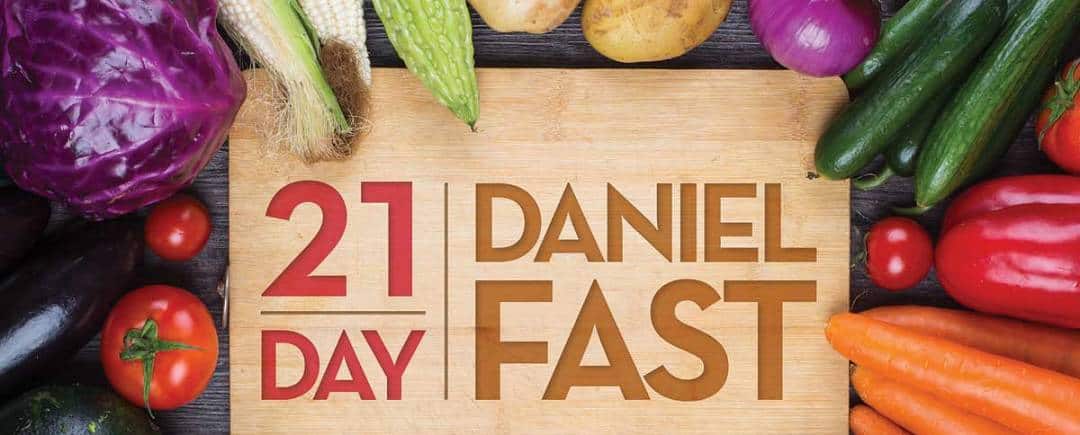There are various types of fasts in the Bible: The Samuel Fast, The Disciples Fast, The Ezra Fast, The Elijah Fast, The Widows Fast, The Apostle Paul Fast, The John the Baptist Fast, The Esther Fast, and The Daniel Fast.
On February 15, we will start The Daniel Fast, 21 days fasting and prayer experience based on the book of Daniel in which he ate “No choice foods, no meats (beef, fish, goat lamb, etc) and no wine (juices)”
In those days I, Daniel, had been mourning for three entire weeks. I ate no tasty food, nor did any meat or wine enter my mouth; and I did not anoint (refresh, groom) myself at all for the full three weeks. -Daniel 10 2-3
The Daniel Fast is a reminder that we must overcome our body’s desires. Daniel first overcame his own bodily desires to be able to refuse the king’s law regarding prayer and be saved from the lions by God. Daniel fasted and prayed for understanding of a vision in Daniel 10. The vision Daniel saw showed what would become of God’s people in the future.
There can be many benefits to fasting. Anything from guidance during a difficult time, an upcoming opportunity, or even for healing. Fasting and praying are done throughout the Bible and in these 21 days, we will dig deeper into the stories of praying and fasting and the blessings that came from these experiences.
Why pray and fast? Fasting without praying is simply starving yourself. This is a time to get closer to God and fasting without prayer will not do this. What about praying without fasting? The purpose of fasting is to remove our bodily desires that we may have a clear focus and listen intently to God’s message in the same way that Daniel had to do so to understand the vision.
As we start the fast, it is important to remember to lean into each other and the church for support. To commit to reading the Bible regularly and pray throughout. If you find yourself feeling weak, pray. If you are inclined to break the fast, pray. If you are having doubts about the blessings that will follow, pray.
If you have chronic health conditions — especially those that require dietary monitoring, such as diabetes, congestive heart failure, and kidney disease — please consult a doctor first.

